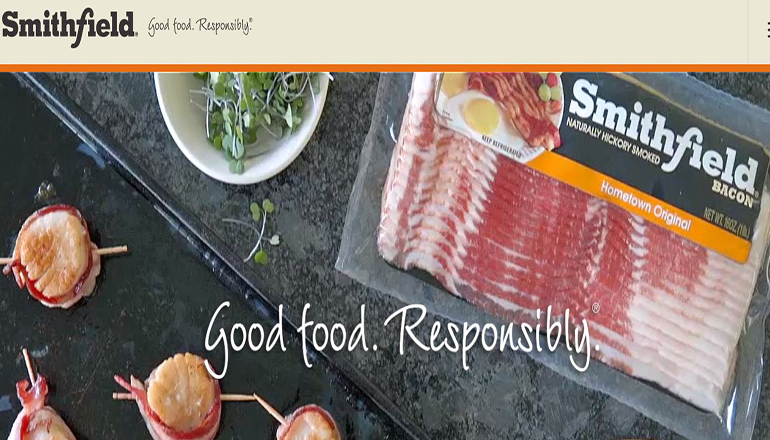A federal judge has thrown out a lawsuit filed on behalf of workers at the Smithfield Foods meatpacking plant in Milan.
In a 24-page order Tuesday, U.S. District Judge Greg Kays declined to hear the case, which had alleged that working conditions at the plant have left its workers dangerously exposed to the COVID-19. The judge ruled it’s a matter for OSHA (Occupational Safety and Health Administration) to consider.
The suit, which was filed nearly two weeks ago by a worker at the Milan plant and a small nonprofit group that advocates for plant workers, alleged that Smithfield Foods had not taken adequate steps to prevent transmission of COVID-19.
Saying he gave more weight to the declarations of Smithfield than those of the plaintiffs, Kays found that the plant was following the joint guidance issued on April 29 by OSHA and the Centers for Disease Control and Prevention. The guidance says that where “feasible,” meat processing plants should stagger shifts and breaks, require workers to stay six feet apart, erect physical barriers, place hand-washing stations in multiple locations, and allow workers to take breaks in different areas to ensure social distancing.
In dismissing the lawsuit, Kays said OSHA was in a better position to determine whether the plant was complying with the guidance. And, he said, deferring to the agency would “ensure uniform national enforcement” of the guidance.
Kays also said he would not have granted the relief requested by the plaintiffs because they had not demonstrated “irreparable harm.”
The plaintiffs wanted Judge Kays to issue an injunction to force Smithfield to provide workers with masks, ensure social distancing, and take other measures to protect their safety.
In his written statement, the judge said the Court is not unsympathetic to the threat that COVID-19 presents to the plant’s workers. But in conducting its analysis, the Court must determine whether the Plaintiffs will suffer actual, imminent harm if the injunction is denied. This is not the same he said as analyzing whether employees risk exposure if they continue to work, and, unfortunately, no one can guarantee health for essential workers — or even the general public — in the middle of this global pandemic.”
Kays went on to say that Smithfield had taken “significant measures to protect its workers “and the fact that there are no confirmed cases of COVID-19 at the plant” did not allow him to conclude that the spread of the disease was inevitable or that Smithfield would be unable to contain it if it occurs.
David Muraskin, a lawyer with Public Justice Food Project, one of the firms that represented the plaintiffs, said in a statement that while he was disappointed with the ruling, the lawsuit forced Smithfield to take the measures it did. He disagreed that Smithfield has implemented sufficient changes to address workers’ concerns and protect their safety. But he noted any changes that have been implemented are the result of the workers who came forward to demand better from the company.







